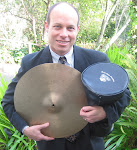 |
| Bloom's Taxonomy |
- Half the students will do homework some of the time.
- About one third will not complete ANY homework on time for the entire year.
- Half the students hate reading and do not understand what they read
- Half will take notes only if forced. Next to none will use notes to prepare for a test. (They prefer using the textbook, amazingly.)
- The students are unwilling to do true group work. One student in the group would do the work and the rest would watch or be off task.
- Activities such as skits and reenactments are only partially effective, because so many of the kids have too little background knowledge to understand the relevance of the activity.
- I will assign fewer readings as homework. We will do almost all reading in the classroom.
- Most lectures will be read-alouds of the textbook. Only after that will students be assigned an in-class reading of the same material.
- I used a variation of Cornell notes last year. Few students benefited. This year we will learn by presenting the material and going over it with frequent informal formative assessments such as fast-paced in-class questions ("peppering").
- I plan more summative assessments that include writing--short essay questions that ask for items high on Bloom's Taxonomy such as evaluating why one leader was better than another. These questions will be complex, so no two answers should be alike.
Postscript: January 7, 2012: These changes have produced better though not radically improved grades. Additionally, I will examine the results of standardized testing, available in August.2013.




Great post.
ReplyDeleteGood luck. Your students are lucky to have such a thoughtful and committed teacher.
"Will this be on the test?"
-Mark Jeffery
LOL! Thanks, Mark.
DeleteSounds good!
ReplyDelete